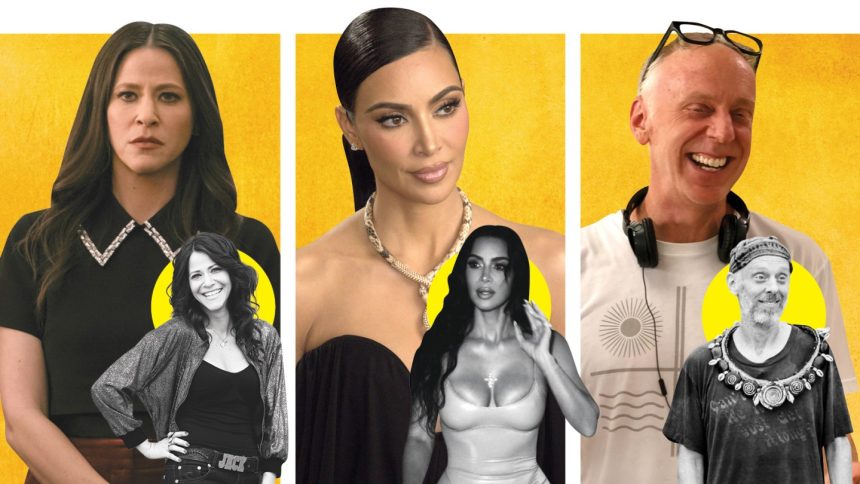So Reality TV Is Bougie Now
When Mike White was announced as returning to Survivor for its upcoming 50th season, the news was met with a fair bit of industry shock.
The writer-director going from a Survivor contestant back in 2018 (who, incidentally, had also competed with his dad on The Amazing Race 14 in 2009) to an Emmy-winning prestige TV auteur with HBO’s The White Lotus was considered a Hollywood hero’s journey. But going back to the island? That’s like trading your first-class ticket for a cramped seat in coach, right? Even the show’s producer and host, Jeff Probst, looked stunned. (“I thought, ‘Well, he’ll never play again [after White Lotus],’ ” recalled Probst to CBS Mornings in May.)
But White’s move actually reflects a larger trend. Just like how the barrier has broken down between A-list actors appearing on film versus TV (see: every Taylor Sheridan drama), performers are now jumping a similar divide between scripted and unscripted. And it’s changing how viewers — and possibly even Emmy voters — define stardom.
Think about the number of actors who suddenly have fewer qualms about playing in the reality sandbox — like Alec Baldwin and Sylvester Stallone diving headfirst into Kardashian-like docusoaps (The Baldwins and The Family Stallone, respectively), Selena Gomez doing a cooking show (Selena + Chef) or Martin Short signing on as a game show host (Match Game).
You Might Also Like
Or think about the amount of talent that’s increasingly come out of the reality space into scripted — like reality queen Kim Kardashian doing Ryan Murphy’s American Horror Story, and American Idol graduates punching above their weight, what with Kelly Clarkson and Jennifer Hudson ruling daytime and breakout Jackie Tohn becoming a top scripted talent, first on GLOW and this season on Nobody Wants This as a potential Emmy contender.
“The wall is coming down in all ways,” says WME nonscripted TV agent Sydney Kobil. “The hierarchy between scripted and unscripted is not up and down; it’s become horizontal. It’s more like: How do I participate in all the different spaces, and, more importantly, how can my passions allow me to do that?”
There were a few macro trends leading to this, insiders point out. Celebrities are getting more savvy about launching their own production companies. Such efforts, in turn, often put them into the business of unscripted — at least behind the camera, if not also stepping in front of it (which is how you end up with Oscar winner Emma Stone executive producing HBO’s recent documentary The Yogurt Shop Murders). Also, the COVID pandemic and the 2023 writers strike may have chipped away at the wall between genres (“Because people weren’t able to play in their original spaces,” Kobil notes).
Which isn’t to say that reality TV has entirely shed its second-class reputation — as the reaction to White demonstrated. Given that White is now literally stuck on an island during Emmy campaign season, it’s not unreasonable to wonder whether his decision will hurt his odds with voters. The three-time winner already skipped a For Your Consideration event in Los Angeles to fly to Fiji for the Survivor taping, quipping in a video message, “I’m sorry I couldn’t be there, but this is what I have to do to get a vacation these days.”
White’s move hits different, however, than the likes of Stallone and Baldwin doing docusoaps — both of which felt a bit like cash grabs and jumping into a format known for its carefully controlled artificiality and self-promotional opportunism (Stallone’s Paramount+ show was fairly well received, though it has been waiting months for a third-season renewal, while Baldwin’s TLC effort was quickly canceled).
On the other hand, White doing Survivor represents a surrender of control that risks jeopardizing an esteemed image (particularly compared to other reality TV contestants). Some will doubtless feel this career detour is slumming. But there is something impressively punk rock about shrugging off bougie awards politicking to risk public humiliation on a game show to compete for a cash prize that’s a presumed fraction of his annual take from his HBO drama.(White once explained his fascination with Survivor to The New Yorker: “I still feel like, even on the most contrived reality show, the people are human and they’re more interesting than some of the most well-scripted drama.”)
Which brings us to a final trend that’s helped blur the lines between scripted and unscripted: The rise of digital content, like YouTube, TikTok and podcasting. Reality TV looks far more stately — glamorous, even — compared to the Wild West of digital content creation, particularly for younger audiences. The very definition of stardom has become so broad and multi-medium that many viewers see a Survivor castmate and a White Lotus actor as simply two celebrities on beaches, and not that far apart.
This story first appeared in a June stand-alone issue of The Hollywood Reporter magazine. To receive the magazine, click here to subscribe.







